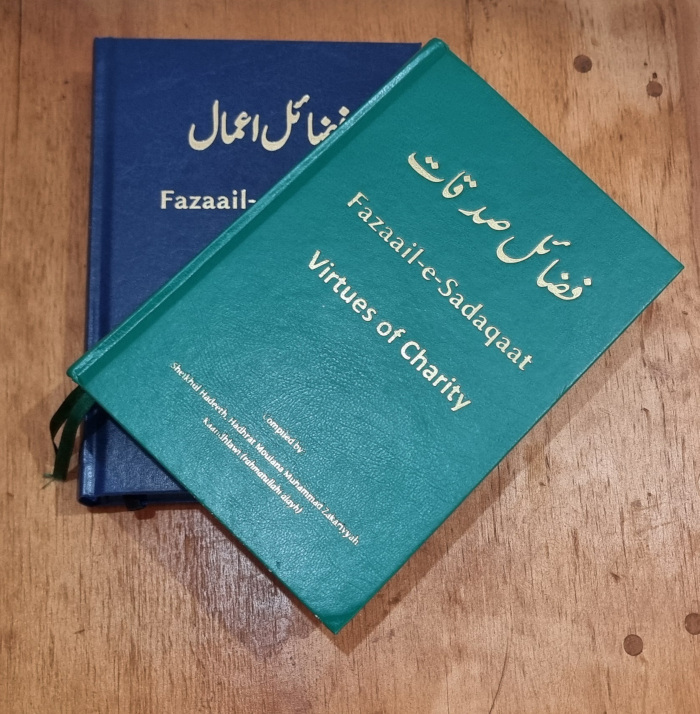
The Twelve Qualities of the True Ulama - Fifth Quality
5. Avoiding the Company of the Kings and Rulers
The fifth quality of the true Ulama who are concerned about the Aakhirah is that they keep away from the company of the kings and rulers. They do not mix with them unless they have to. Rather, the Ulama should avoid such people, even if they themselves come to visit them, they should not spend a lot of time with them.
The reason is that sitting with them will inevitably lead to one trying to please them and keep them happy (in order to gain some worldly favor). These people, who are rulers, most of them are involved in oppression and committing many wrongs, and it is necessary for an Aalim of Deen to stop them from such evil deeds. Similarly, it is necessary for an Aalim of Deen to show them their injustice and cruelty, and to correct them when they break the orders of Allah Ta‘ala. For an Aalim of Deen to remain silent in such matters amounts to compromising in deen.
Remember that if one praises the rulers merely to win their pleasure, then one will be speaking lies to them about themselves, and at that time (when praising them,) if one’s heart is inclined towards their wealth and riches and one hopes to receive wealth from them, then this is not permissible, as it is based on greed. In short, mixing with such people is the key to the door which leads to many wrongs being perpetrated.
Rasulullah (sallallahu ‘alaihi wasallam) has said that those who live in unpopulated areas become hard-hearted; those who pursue prey become unmindful (of their obligations); and those who frequent kings and rulers will fall into fitnah (i.e. they will fall into difficulty on account of them being attracted to the wealth of the kings and rulers).”
Hazrat Huzaifah (radhiyallahu ‘anhu) said, “Beware of being present in the places of temptation!” When asked what the places of temptation were, he replied, “The doors of the rulers, as those who visit the rulers will have to agree to their wrongs, and (in praising them,) they will have to say things about them which are not true!”
Rasulullah (sallallahu ‘alaihi wasallam) once said that the worst among the Ulama are those who visit the rulers, and the best among the rulers are those who visit the Ulama.
Samnoon (rahimahullah), one of the companions of Saryy Saqati (rahimahullah), mentions:
“When you hear about an Aalim who loves this world, then don’t trust him in matters of Deen. I have experienced this myself. Whenever I went to see the king, then after returning, when I looked within my heart, I found the bad effects of the visit in my heart, even though I talk to the kings harshly, disagree with them sternly and do not benefit from anything that belongs to them, to the extent that I even stay away from drinking water by them.
“Our (worldly) Ulama are worse than the Ulama of the Banu Israaeel because they (i.e. our Ulama) go to the rulers and tell them how to evade the laws of Shariah just to get their favours. If the Ulama were to clearly explain to the rulers their deeni responsibilities and duties, they would not like the Ulama to visit them, and explaining the haq to them in straight, clear words would become the means of these Ulama gaining salvation in the sight of Allah Ta‘ala.
“The Ulama visiting the rulers is certainly a great fitnah (trial), and it helps shaitaan to lead the Ulama astray. Shaitaan makes a special effort on the Ulama who speak eloquently, whispering into their hearts saying, ‘Go to the rulers, as your visiting them will be a means for their reformation. Through your advice, they will be saved from falling into oppression, and it will also be helpful for preserving the Sha’aa’ir of Islam (i.e. the salient symbols of Islam such as salaah, jihaad, etc.).’ Eventually, such an aalim begins to believe that visiting such people (i.e. the kings and rulers) is also an act of ibaadat, though the reality is that if one visits them, one will have to compromise one’s deen to please them, and one will have to praise them unnecessarily, and this will cause the destruction of one’s deen.”
In a letter to Hazrat Hasan Basri (rahimahullah), Hazrat Umar Bin Abdul Aziz (rahimahullah) wrote, “Please send me the names and particulars of suitable people whom I could ask to assist me in running the affairs of the Khilaafat.”
Hazrat Hasan Basri (rahimahullah) replied, “The pious will not come to you, and obviously, you will not choose those who are attracted by the world for these positions (and nor should you do so i.e. greedy and worldly people should not be given these positions as due to their greed for wealth and power, they will corrupt the affairs of the government). Hence, I suggest that you should hire people of noble families, because their nobility will not allow them to be dishonest.”
This was the reply sent by Hazrat Hasan Basri (rahimahullah) to Hazrat Umar bin Abdul Aziz (rahimahullah) whose qualities of disinterest in the dunya, piety, equality and justice were proverbial, so much so that he is titled as the ‘Second Umar’ (because he was just like Hazrat Umar bin Khattaab [radhiyallahu ‘anhu], the second Khalifah of Islam).
This view is held by Imaam Ghazaali (rahimahullah) (that the Ulama should not frequent the gatherings of the rulers). However, this humble author (Hazrat Shaikh Moulana Muhammed Zakariyya [rahimahullah]) is of the view that if there is a genuine deeni need for one to go to the rulers, then it is permissible, provided that one is watchful over oneself and protects himself (against worldly temptations). In fact, at times, in the interest of deen, it becomes necessary for an aalim to meet the rulers (e.g. to advise them or assist them in matters of deen). However, it is very important that one should not go to them for personal motives, personal interest, material gain, or worldly honor and prestige. Instead, one’s intention should be solely to fulfil the need of the Muslim community. Allah Ta‘ala says:
وَ اللّٰہُ یَعۡلَمُ الۡمُفۡسِدَ مِنَ الۡمُصۡلِحِ ؕ
And Allah Ta‘ala knows the one who intends to corrupt from the one who intends to improve (matters). (Surah Baqarah v. 220)
(Fazaa’il-e-Sadaqaat [English] pg. 442-445, [Urdu] pg. 487-489)
 Ihyaaud Deen An Effort to Revive Deen in Totality
Ihyaaud Deen An Effort to Revive Deen in Totality



